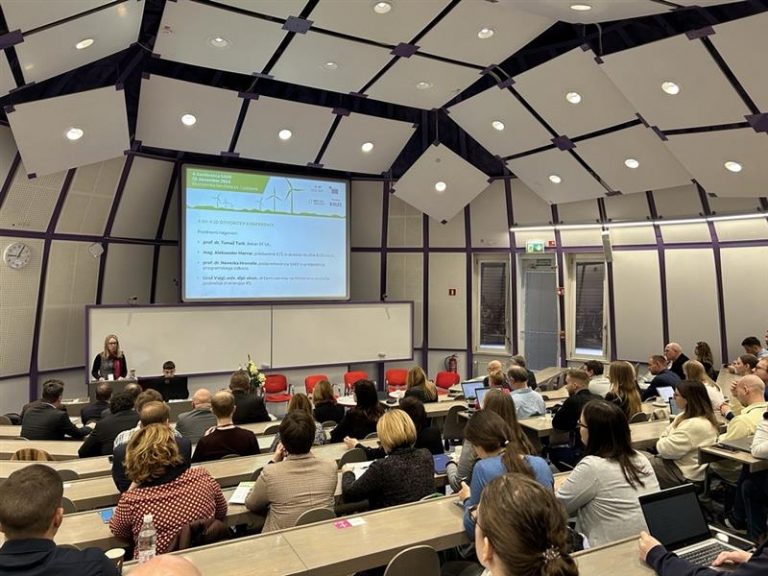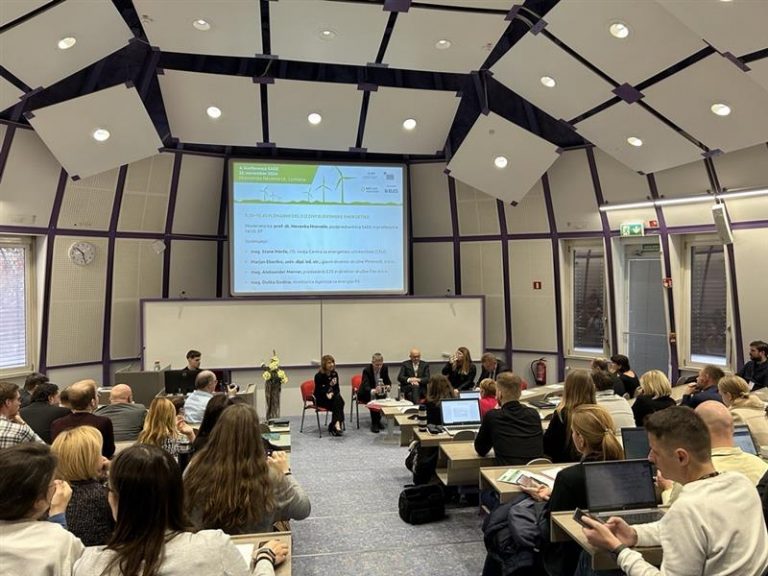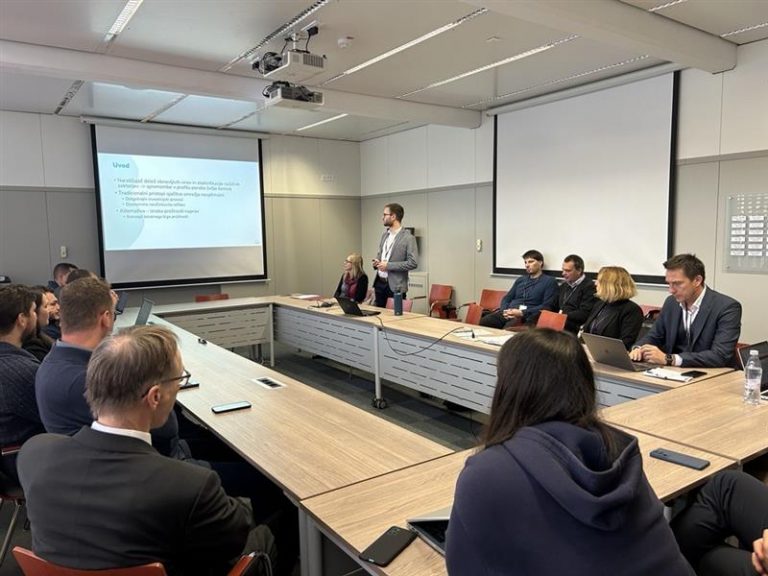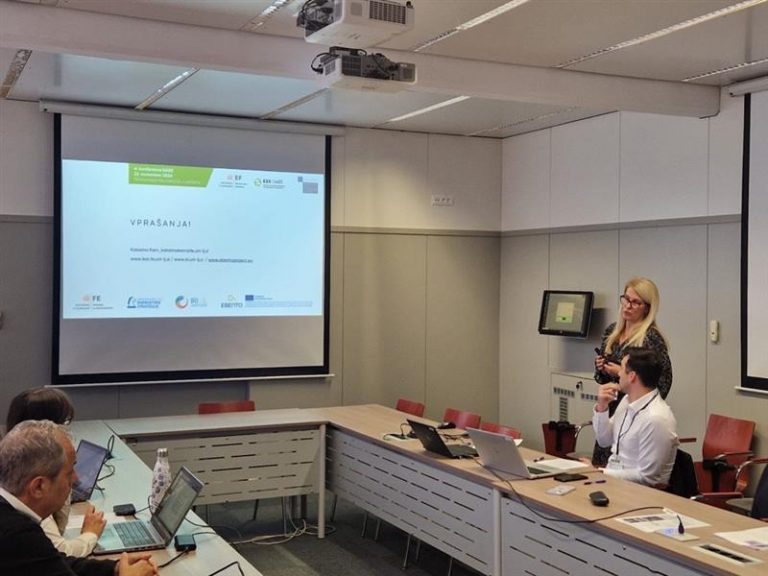
4th Conference of the Slovenian Association for Energy Economics SAEE
What: 4th Conference of the Slovenian Association for Energy Economics SAEE
Where: University of Ljubljana, School of Economics and Business
When: 22nd of November 2024

The 4th SAEE Conference, held on November 22nd, was organized by the Slovenian Association for Energy Economics (SAEE) in collaboration with the Centre of Business Excellence (CPOEF) and the School of Economics and Business at the University of Ljubljana, where the event also took place.
The Conference brought together representatives from Slovenia’s leading energy companies, the energy regulator, research institutions, and industry associations to discuss key challenges and opportunities in Slovenia’s energy sector. The event began with opening remarks by Prof. Dr Tomaž Turk, Dean of the School of Economics and Business at the University of Ljubljana; Mag. Aleksander Mervar, President of EZS and Director of ELES d.o.o.; Prof. Dr Nevenka Hrovatin, Vice President of SAEE and Chair of the Programme Committee; and Uroš Vajgl, State Secretary at the Ministry of Environment, Climate and Energy.
The first plenary session, titled Challenges in Slovenia’s Energy Sector, was moderated by Prof. Dr Nevenka Hrovatin. The first speaker was Mag. Stane Merše from the Jožef Stefan Institute, Energy Efficiency Centre. He presented updates to the National Energy and Climate Plan (NEPN), highlighting goals to reduce emissions, increase the share of renewable energy sources, and the need for investments in solar, wind, hydro, and hydrogen energy. Marjan Eberlinc, BSc Eng. from Plinovodi, addressed the integration of renewable gases and hydrogen into energy networks. Meanwhile, Mag. Aleksander Mervar from ELES d.o.o. highlighted infrastructure challenges and realistic constraints related to hydrogen, as well as the potential for extending the lifespan of the Krško Nuclear Power Plant (JEK) while emphasizing energy supply reliability. Mag. Duška Godina from the Slovenian Energy Agency pointed to Austria as an example, where plans are in place to raise electricity prices by discontinuing existing measures. The funds collected would be invested in projects to combat energy poverty.
The second plenary session, titled Opportunities and Adaptation to the Green Transition, was moderated by Prof. Dr Matej Švigelj. Dr Dejan Paravan from GEN energija d.o.o. discussed power purchase agreements (PPAs) for nuclear energy and progress on the HE Mokrice hydropower project. Dr Tomaž Štokelj from HSE d.o.o. highlighted HSE’s investments in solar, wind, and hydro energy. Sašo Berger, BSc Econ., from Petrol d.d., emphasised the importance of domestic energy sources, while Ljubo Germič, BSc Eng., from the District Heating Section of EZS, pointed out the insufficient focus on heat, district heating, and sector coupling.
The afternoon session featured research papers in energy economics, and we are proud of the presenter from our Laboratory of Energy Policy, who highlighted three of our research papers.
In the session on Energy Renovation of Buildings, the paper Energy Renovation of Residential Buildings and the Implementation of Energy Performance Contracts – Current Status and Plans in Slovenia, developed as part of the EBENTO project, in the E-mobility, Digitalisation, and Artificial Intelligence session, the paper Analysis of Consumption Forecasting and Utilisation of Flexibility in an Electric Vehicle Fleet within the OPENTUNITY Project and in the session on Analysis and Development of Energy Markets and Systems, the paper Design of a Traffic Light System for the Effective Operation of a Local Flexibility Market within the STREAM Project was presented.
You can read more about the selected research papers in the Proceedings of the 4th SAEE Conference on Energy Economics.
The conference featured numerous renowned experts and distinguished speakers who addressed key challenges and current issues in Slovenia’s energy sector. This summary highlights just a few key points, while the event provided an in-depth insight into the future directions of Slovenia’s energy development and emphasised the importance of collaboration in achieving sustainable energy goals.



